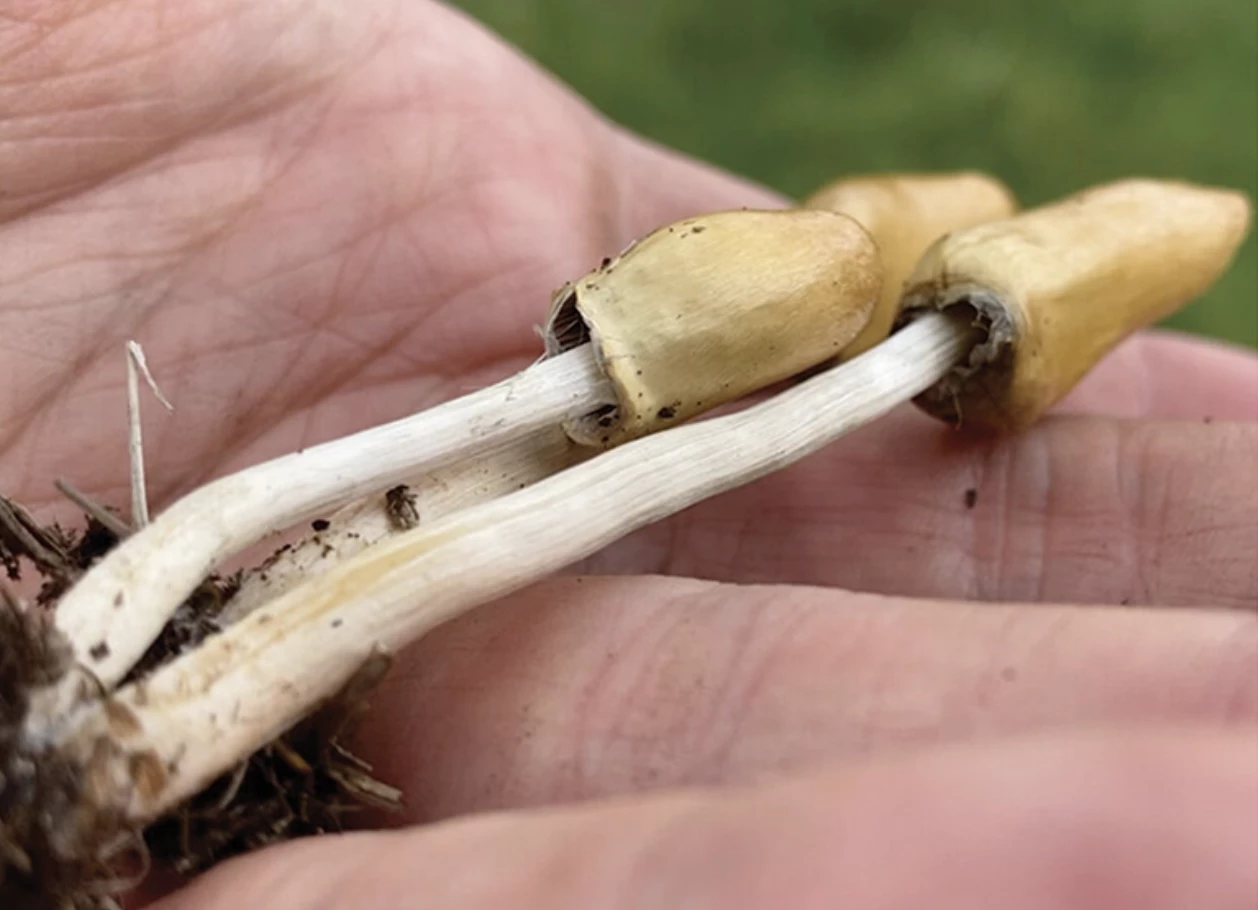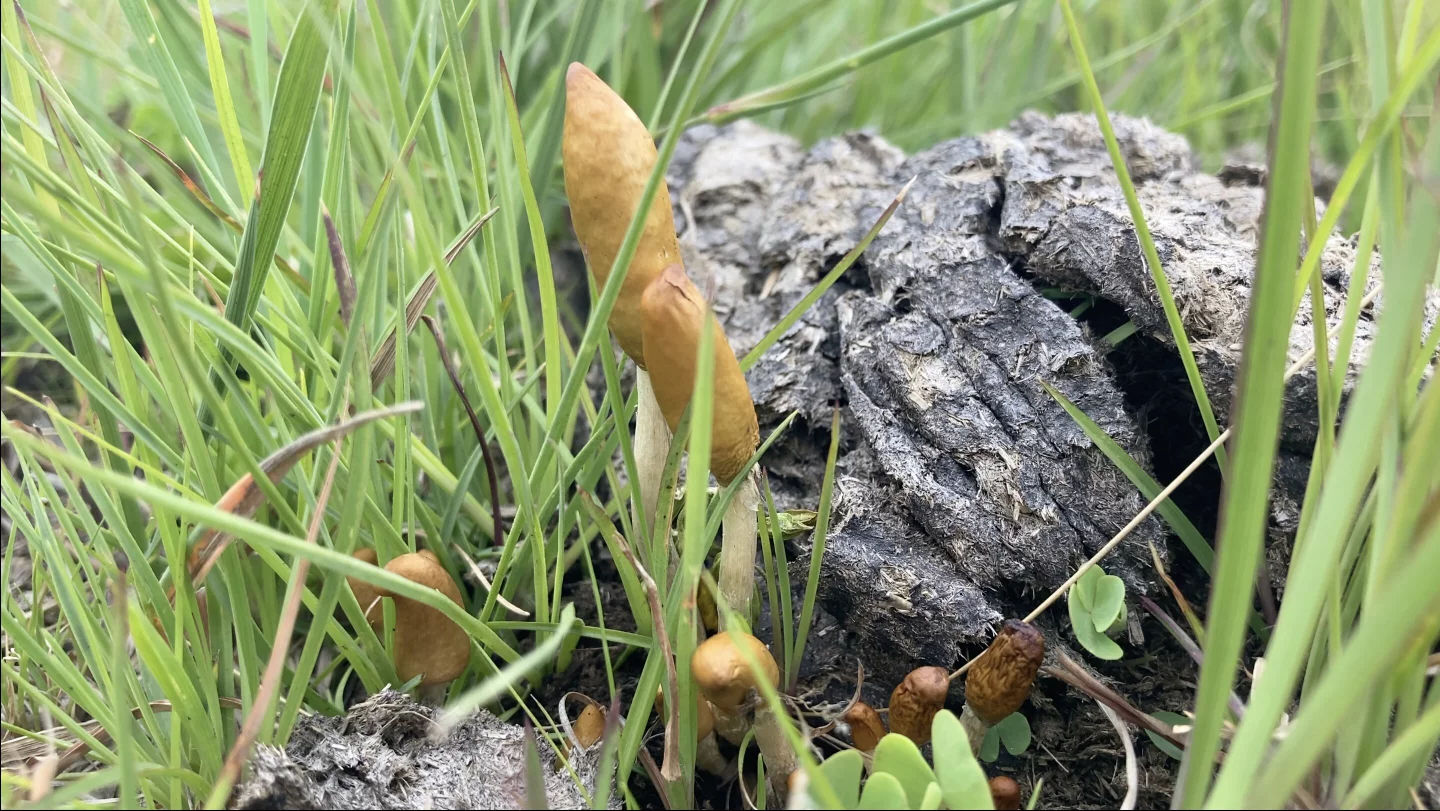Two new species of hallucinogenic fungi have been identified and officially described, joining the ranks of around 140 known types of these psychoactive gilled mushroom.
Phylogenetic and morphological analysis by researchers at Stellenbosch University and citizen myologists confirmed the two mushrooms were novel species in the Psilocybe genus, and both P. ingeli and P. maluti were uncovered in southern Africa. This takes the continent's number of endemic psychoactive species to six.
P. ingeli was found in grassland in South Africa's Kwa-Zulu Natal Province, while P. maluti was collected around 310 miles (500 km) away in the Free State Province and seen in the Kingdom of Lesotho. P. maluti, named after the Maluti Mountains where it's found, has also been identified more broadly across South Africa.
Both have distinct morphological differences, too, with P. ingeli sporting a hemispheric pileus ('cap') and exposed gills, while P. maluti has a more bulb-shaped 'secotioid' pileus. One thing they do have in common, besides their psychoactive components, is cow dung: Both species were first found either in bovine-manure-rich soil or actually growing out of a pile of poop.

The researchers say these species many never have been found if not for the help of citizen science enthusiasts – in particular, the mycology experts. Both mushroom types were sent to Breyten van der Merwe at Stellenbosch University for DNA sequencing and further genetic analysis.
"These two species were sent to me by citizen scientists," said study first author van der Merwe, who is also a trained mycologist. "It would be impossible for a single researcher to cover a fraction of an area these mushroom enthusiasts have access to. This is the only way we will be able to further studies in African mycology."

The researchers also discovered, through work with Mosotho traditional healer Mamosebetsi Sethathi, that P. maluti has been used in cultural practices in the mountainous landlocked county of Lesotho. It's the only recorded report of psychedelic mushrooms being used in traditional African medicine. To the locals, it's known as "koae-ea-lekhoaba."
There are only a handful of mycologists in Africa documenting local biodiversity," said Professor Karin Jacobs, from the university's Department of Microbiology. "Considering the vast mycological diversity on the continent, it is a daunting task. Collaborating with citizen mycologists is therefore hugely beneficial. In addition to more material, collaboration also opens avenues for conversation and exploration, which can lead to documenting mycophilia (the love of mushrooms) on the African continent."
The study was published in the journal Mycologia.
Source: Stellenbosch University via EurekAlert!






